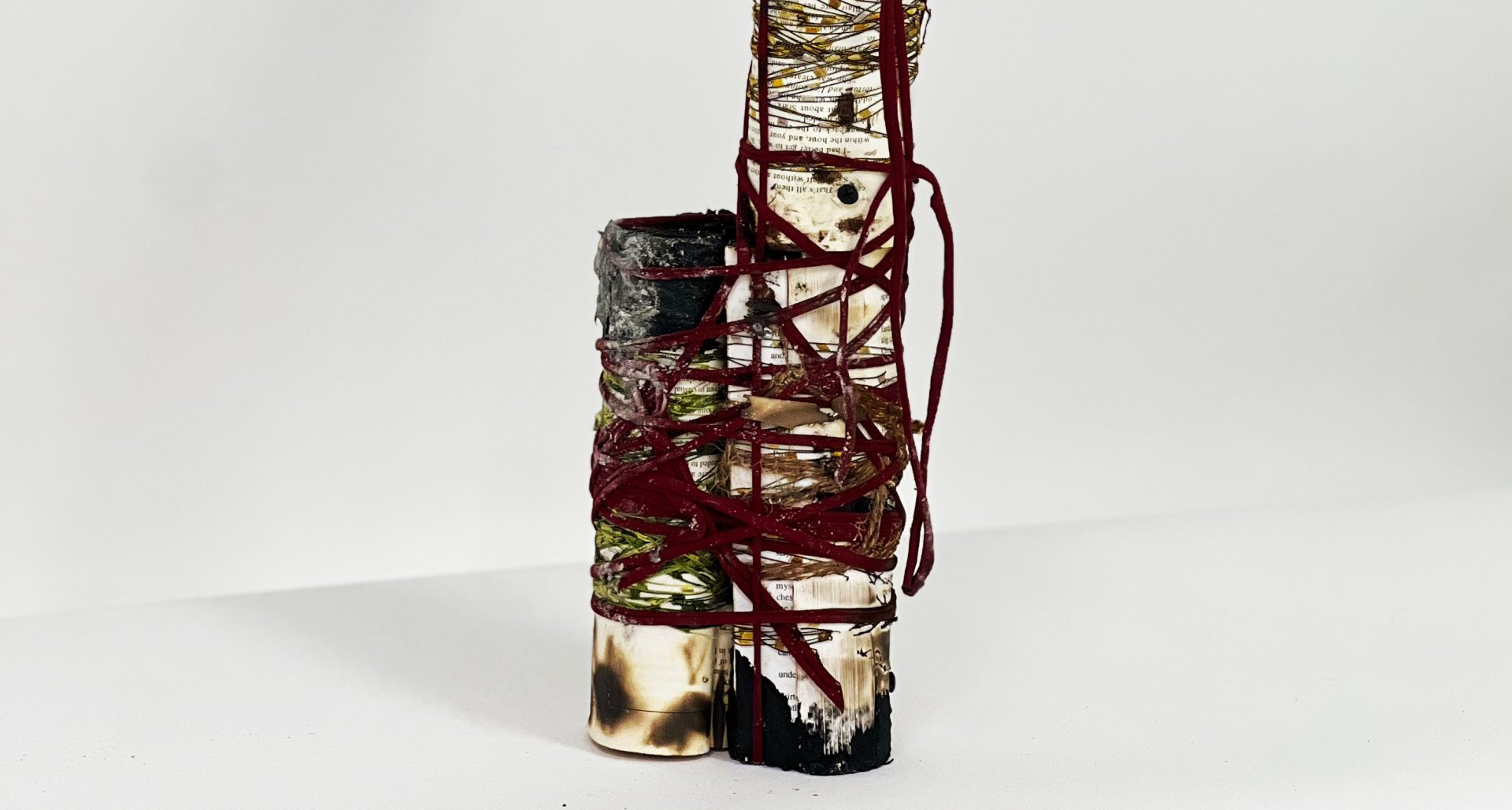


The practice of Marco Caridad (Maracaibo, 1985) is grounded in the exploration of his own identity and the complexities involved in existing while challenging collective patterns. Being Latinx with indigenous solid roots, an immigrant, and a member of the LGBTQ+ community, Caridad finds in expressionism a language that allows him to speak from an interiority in intense conversation with the social field, but also in constant exercise of self-awareness.
The works gathered in this exhibition attest the artist’s sharp research in diverse media, and the updating that his practice makes of the languages concerning emotion, openly integrating it into contemporary expressionist currents.
Caridad employs the term “tongue”—both organic and linguistic—to converge the imagery associated with sensuality and eroticism with the perspective that understands language as a meaningful field crucial in structuring the individual and society. Thus, most works incorporate texts from novels by LGBTQ+ authors, becoming pleas for the inclusion of new stories and new realities constructed from a new language.
In Untitled, the artist brings to painting frames from his video performance Desigual Makeup, a self-portrait in which he applies body paint to express his frustration with the modes of being established by a heteronormative society. The distortions created digitally in the video are gesturally depicted in the painting through thick areas of pigment, free strokes, collages of burnt pages, and oil, a material related to the artist’s origins in Venezuela’s most important oil-producing region.
The series Lenguas afuera, Hombres de maíz, barro o madera, and the installation Metrópolis were made with ‘guts’ of rolled and tied books, forming cylinders of paper and fabric. This configuration emphasizes the ambivalence between tenderness/recollection and violence/confinement. In Lenguas afuera, there is a glimpse of the aspiration to ‘let the truth of what we are come out’, while Metrópolis prompts us to contemplate a society that sincerely embraces diverse realities. Equally suggestive are the series Portadas sin juicios—made with book covers, burnt pages, and found objects—and Desfragmentados—an homage to homoerotic intimacy incorporating macrophotographic fragments of a male body.
The series Rejas and Es de día y veo la luna emerge from readings of the Popol Vuh—an ancient Mayan cosmogonic text—and from the artist’s interest in the history of Hunahpu and Ixbalanqué, male entities related to the creation of the world and humanity. The Rejas consist of superimposed sheets bearing printed phrases, figures alluding to these mythological entities, and the design of a grille—an element that both imprisons and protects, essential in every Latin American home. Here the artist’s need to be elusive and keep the work in the interstices of perception and meaning becomes evident. The paintings Es de día y veo la luna reveal Marco Caridad fully employing his expressive prowess as a painter. These gestural landscapes are composed of thick layers of pigment, where the sky and the earth, the mountains and the stars, acquire emotional and transcendent significance.
Due to its visual and narrative richness, Marco Caridad’s work invites multiple interpretations and contemplative enjoyment. Thus, it serves as a conduit to explore, comprehend, and share the complexities of the human experience in our diverse and evolving world.
Katherine Chacón, Curator and Art Critic

